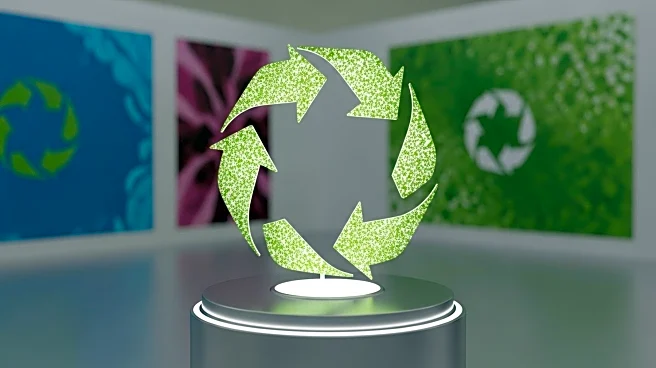What's Happening?
Vestiaire Collective, a prominent resale platform for luxury fashion, is introducing a carbon credit scheme aimed at monetizing the environmental benefits of purchasing second-hand clothing. Starting in October, the company will sell carbon credits certified by French partner Inuk, representing emissions avoided through the purchase of pre-owned items. Each credit corresponds to one tonne of avoided emissions, calculated using a methodology certified by AmSpec. In 2024, Vestiaire Collective reported that its sales avoided over 63,000 tonnes of carbon emissions, surpassing its own carbon footprint. The initiative seeks to provide traceable credits based on actual avoided emissions, rather than projected future benefits, to avoid controversies associated with similar schemes. The company plans to reinvest proceeds into further research and marketing efforts to promote sustainable shopping practices.
Why It's Important?
This initiative by Vestiaire Collective is significant as it represents a novel approach to monetizing the environmental benefits of circular fashion. By selling carbon credits, the company aims to establish a financial incentive for sustainability, potentially attracting more industry players to adopt circular practices. This move comes at a time when climate regulations are being rolled back and major brands show limited engagement with sustainability. Vestiaire's approach could set a precedent for other companies in the fashion industry, encouraging them to consider the financial viability of eco-friendly practices. The scheme also highlights the potential for resale platforms to contribute positively to climate change mitigation by reducing the demand for new clothing production.
What's Next?
Vestiaire Collective plans to sell 55,000 certified credits, representing emissions avoided from sales in 2023 and 2024. The first year of the scheme will serve as a learning phase, allowing the company to test market reactions and gather data on emissions and consumer behavior. The company hopes to use the proceeds to create incentives for users to choose second-hand items over new ones, although specific plans for these incentives remain unclear. Vestiaire's chief impact officer, Dounia Wone, emphasizes the importance of affordability in driving consumer choices towards second-hand purchases, suggesting that the scheme could help shift consumer mindsets towards sustainability.
Beyond the Headlines
Vestiaire Collective's carbon credit scheme could have broader implications for the fashion industry by demonstrating the potential for circular economic models to be financially viable. This initiative may encourage other companies to explore similar strategies, potentially leading to a shift in industry standards towards more sustainable practices. Additionally, the scheme could influence consumer behavior by highlighting the environmental impact of purchasing second-hand items, potentially leading to increased demand for resale platforms and a reduction in fast fashion consumption.










